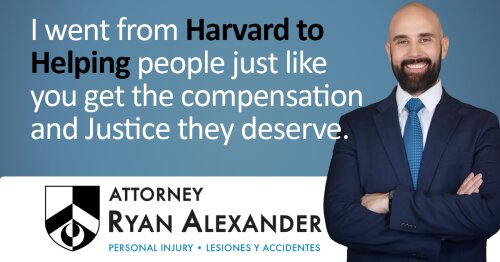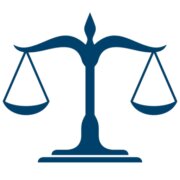Best Faith-Based Law Lawyers in Las Vegas
Share your needs with us, get contacted by law firms.
Free. Takes 2 min.
List of the best lawyers in Las Vegas, United States
About Faith-Based Law in Las Vegas, United States
Faith-based law covers the legal issues that affect houses of worship, faith-based charities, religious schools, clergy, and individuals whose lives intersect with religion. In Las Vegas, faith-based law sits at the intersection of federal constitutional protections, Nevada state statutes, and local city and county regulations. The First Amendment to the U.S. Constitution provides core protections for the free exercise of religion and for freedom from government establishment of religion. Nevada state law and local ordinances add layers of regulation on matters such as nonprofit formation, taxation, zoning, public health compliance, employment, and fundraising. Practically, faith-based legal needs in Las Vegas range from setting up a church or religious nonprofit to navigating disputes about religious expression in public spaces.
Why You May Need a Lawyer
People and organizations seek legal help in faith-based matters for many reasons. Common situations include:
- Forming and structuring a religious organization or nonprofit to obtain appropriate liability protections and tax status.
- Applying for federal tax-exempt status and complying with ongoing reporting requirements.
- Zoning and land-use issues for building or expanding places of worship, schools, or community centers.
- Employment matters, including religious accommodations, claims of religious discrimination, and the ministerial exception for clergy employment disputes.
- Contracts for property leases, construction, vendor services, or clergy agreements.
- Responding to allegations of misconduct or abuse involving clergy, volunteers, or staff, including reporting obligations and internal investigations.
- Handling disputes about religious expression in public schools, government forums, or public accommodations.
- Compliance when a faith-based group accepts government grants or contracts, including nondiscrimination conditions and funding restrictions.
- Mergers, dissolution, or trustee disputes in religious organizations.
Local Laws Overview
Several legal layers apply to faith-based entities and matters in Las Vegas:
- Federal Constitutional Protections: The First Amendment protects free exercise and bars government establishment of religion. Federal case law further defines doctrines such as the ministerial exception and religious exemptions in certain statutory schemes.
- Nevada State Law: Nevada governs business and nonprofit formation, including how religious corporations or nonprofit corporations are created and administered. Nevada law also establishes obligations for charitable solicitation and sets rules for employment discrimination under state statutes.
- Tax and Charitable Regulation: Federal tax law determines eligibility for 501(c)(3) tax-exempt status and unrelated business income tax rules. State and local agencies regulate charitable fundraising and may require registrations or disclosures for public solicitations.
- Zoning and Building Codes: Clark County and the City of Las Vegas require compliance with zoning ordinances, building permits, occupancy limits, fire codes, and accessibility rules for places of worship, religious schools, and assembly spaces. Special use permits or conditional use approvals may be necessary for certain properties or expansions.
- Employment and Civil Rights: Federal civil rights laws such as Title VII prohibit employment discrimination based on religion, while providing for reasonable accommodation unless it creates undue hardship. Nevada state laws may provide parallel protections and enforcement mechanisms. The ministerial exception can bar certain employment claims by clergy.
- Health, Safety and Public Order: Public health mandates, noise ordinances, parking rules, and public safety regulations apply to faith-based gatherings. When a religious practice conflicts with public health orders or safety rules, tensions can arise that may require legal resolution.
Frequently Asked Questions
What protections does the First Amendment provide to religious organizations in Las Vegas?
The First Amendment protects both the free exercise of religion and freedom from government-established religion. That means the government cannot generally prohibit religious beliefs or unduly burden religious practices without a compelling interest and narrow tailoring. It also prevents government endorsement of religion. These protections are applied through federal court decisions and shape how state and local governments may regulate religious activity.
Do I have to register my church or religious organization with the state of Nevada?
Religious organizations operating in Nevada often form as nonprofit corporations to gain liability protections and manage governance. While informal congregations may operate without formal registration, legal benefits such as limited liability, contractual capacity, and eligibility for state recognition typically require filing formation documents with the Nevada Secretary of State. Additionally, organizations that solicit charitable donations may need to comply with state charitable solicitation rules.
How do I obtain federal tax-exempt status for a faith-based organization?
To be recognized by the federal government as tax-exempt, many faith-based organizations apply for 501(c)(3) status with the Internal Revenue Service. This process generally requires establishing a qualifying organizational purpose, drafting bylaws and articles of incorporation that meet IRS requirements, and filing an application with supporting documentation. Once approved, organizations must comply with annual reporting and restrictions on political campaign activity and substantial lobbying.
What zoning or permitting rules should I expect when opening a house of worship or religious school in Las Vegas?
Local zoning rules determine where places of worship and religious schools can locate, parking and signage requirements, and whether special use permits or conditional use approvals are required. Building permits, occupancy inspections, fire safety compliance, and accessibility standards must also be met. Before purchasing or renovating property, consult local planning and building departments to confirm permitted uses and required approvals.
Can a faith-based employer make employment decisions based on religion?
Religious organizations have certain exemptions that permit consideration of faith in hiring decisions, particularly for roles that are ministerial or central to religious mission. However, when a religious organization acts as an employer in broader commercial contexts, federal and state anti-discrimination laws can apply. Whether an exemption applies depends on the specific position and the organization’s structure and activities.
What is the ministerial exception and how does it affect employment disputes?
The ministerial exception is a judicially created doctrine that can bar employment discrimination lawsuits by employees who perform key religious functions, such as clergy or religious leaders. If the exception applies, courts may decide that civil courts should not adjudicate certain employment claims that would interfere with religious hiring and firing decisions. Determining who qualifies as a minister depends on job duties and the role within the religious organization.
Can a faith-based organization receive government grants or contracts in Las Vegas?
Yes, religious organizations can receive government grants or contracts, but acceptance of public funds may trigger compliance requirements such as nondiscrimination rules, separation of funds for secular activities, and limits on using public money for inherently religious activities. The terms of a specific grant or contract will govern what is permitted, and legal advice can help ensure compliance while protecting religious identity.
What should I do if there are allegations of abuse or misconduct involving clergy or volunteers?
Allegations of abuse or misconduct must be taken seriously. Legal obligations may include mandatory reporting to law enforcement and child protection agencies, cooperating with investigations, conducting internal reviews with care for due process, and seeking legal counsel to manage risk and compliance. Faith-based organizations should have clear policies, training, and record-keeping to prevent misconduct and respond appropriately when it occurs.
How are religious activities in public schools handled in Las Vegas?
Religious expression by students is protected under the First Amendment, but public schools must avoid endorsing or promoting religion. Student-led religious activities that are voluntary and not school-sponsored are generally permitted. School policies must balance free exercise rights with the prohibition on government establishment of religion. Disputes often require careful factual analysis and may involve state education rules and federal guidance.
How do I find a lawyer experienced in faith-based legal matters in Las Vegas?
Look for attorneys with experience in nonprofit law, constitutional religious liberty cases, employment law with religious exemptions, zoning and land use for places of worship, or tax-exempt organization work. Ask about specific experience with religious organizations, request references, and confirm that the attorney understands both the legal and practical concerns of faith-based groups. Initial consultations can help you assess fit and expertise.
Additional Resources
When seeking more information or assistance, consider contacting the following types of organizations and agencies:
- Nevada Secretary of State - for business and nonprofit entity formation and filings.
- Nevada Attorney General - for guidance on charitable trusts, charitable solicitation requirements, and consumer protection matters.
- Clark County Planning and Zoning and the City of Las Vegas Planning and Building Departments - for local zoning, permits, and building code compliance.
- Internal Revenue Service - for federal tax-exempt status, reporting, and compliance requirements.
- Equal Employment Opportunity Commission and the state civil rights agency - for questions about employment discrimination and religious accommodation in the workplace.
- U.S. Department of Justice - for federal civil rights and religious liberty guidance.
- Local bar association referral services - to find attorneys with relevant religious or nonprofit experience.
- Local legal aid organizations and pro bono clinics - for low-cost or free assistance if resources are limited.
Next Steps
If you need legal assistance with a faith-based matter in Las Vegas, consider these practical next steps:
- Gather key documents - articles of incorporation, bylaws, property deeds, lease agreements, employment handbooks, insurance policies, financial statements, and any correspondence related to your issue.
- Define your objectives - be clear about the outcome you want, whether it is resolving a dispute, obtaining tax-exempt status, securing permits, or protecting religious exercise.
- Schedule an initial consultation - speak with an attorney who has relevant experience. Prepare concise questions and share critical documents in advance.
- Ask about fees and engagement terms - understand fee structures, retainer requirements, and how the attorney will communicate about progress and costs.
- Consider alternative dispute resolution - mediation or negotiation can be faster and less costly than litigation for many disputes.
- Implement compliance practices - adopt clear policies on safeguarding, employment practices, record-keeping, and fundraising to reduce future legal risk.
When in doubt, consult a qualified attorney to get advice tailored to your specific circumstances. Legal rules affecting religion can be intricate and fact-sensitive - prompt, informed action protects your organization and those you serve.
Lawzana helps you find the best lawyers and law firms in Las Vegas through a curated and pre-screened list of qualified legal professionals. Our platform offers rankings and detailed profiles of attorneys and law firms, allowing you to compare based on practice areas, including Faith-Based Law, experience, and client feedback.
Each profile includes a description of the firm's areas of practice, client reviews, team members and partners, year of establishment, spoken languages, office locations, contact information, social media presence, and any published articles or resources. Most firms on our platform speak English and are experienced in both local and international legal matters.
Get a quote from top-rated law firms in Las Vegas, United States — quickly, securely, and without unnecessary hassle.
Disclaimer:
The information provided on this page is for general informational purposes only and does not constitute legal advice. While we strive to ensure the accuracy and relevance of the content, legal information may change over time, and interpretations of the law can vary. You should always consult with a qualified legal professional for advice specific to your situation.
We disclaim all liability for actions taken or not taken based on the content of this page. If you believe any information is incorrect or outdated, please contact us, and we will review and update it where appropriate.









